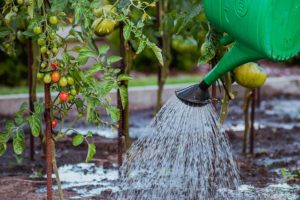Some months ago I watched this video by Kate Raworth about the Three Horizons of Bill Sharpe:
It is a quick but elegant introduction to this framework:
Where Horizon 1, or H1, stands for business as usual, Horizon 3, or H3, for the emerging future or the future we want and Horizon 2, or H2, for any disruptive innovations that can either prolong H1 or strengthen the rise of H3.
Since I have seen Kate’s introduction of this framework it did not let me go. I asked myself: which activities of people and organizations that want to change the system of education are in fact prolonging the system we do not want? And which activities are disruptive in the sense that they bring H3 closer? Since I am in the business of changing the system of (economics) education, this is a good question to ask. When I develop lessons in which I try to navigate towards the current specification am I not, in fact, prolonging H1? And when I develop projects or assignments which teachers can use as electives or to give a project week some substance, am I not prolonging H1 also? I see a lot of the effort put in sustainability education in this light, but I am not sure if I am right. What I do know is that all of us are competing for a little bit of space in the curriculum, especially in secondary education, contributing to a kind of overkill.
When I think of something that could be a positive, disruptive, innovation, I am thinking of breaking down the walls between subjects and delivering a cross-curricular education. I am thinking along these lines, because I believe it is the absence of a holistic curriculum, which brings together all subjects in their interrelatedness, that brought us the predicament we are in now.
From an economics perspective this would involve Know Your Economy as a starting point. Although this in itself encompasses several subjects, you could even make this broader and encompass all subjects through a Know Your World approach. One of the benefits I see of the Know Your Economy approach is that it includes financial literacy as a matter of course. This is important, because a predominantly theoretical approach does not prepare students for society, as my son lamented when he had completed his A-levels.
Know Your Economy is an idea that we are exploring and that is rooted in the social foundation of the Doughnut Model. The social foundation has several economic sectors that are of particular interest as systems of provision. I am referring to food, housing, energy, water, education and healthcare. I believe that if you extend these with clothing and electronics you could cover most if not all of the concepts covered in economics today, expanded with both the planetary boundaries and the social foundation. In doing so, you will and should cross the conventional boundaries of the subject of economics and venture into other territories – thus making this approach cross-curricular..
I will illustrate this with the example of the topic of water. This could typically start with tap water – how it is provided, which systems of allocation are used in the provision, which agents are involved, how the price is set, what happens with the waste water, etc. This is a very practical approach where students learn how this is done now. The next thing could be to look at water usage in relation to water availability. This requires knowledge of the water cycle and how climate and climate change affect water availability in an area and how this changes over a year and across years. This raises the question how we manage our water to have the maximum benefit of the water that falls on our soil and our roofs – which, by the way, do not travel the same route – and what role individuals have in water management.
It was a Dutch scientist, affiliated with the University of Twente, Arjen Hoekstra, who introduced the concept of virtual water. Through this concept he wanted to show how we in the developed countries, through our consumption, are increasing water stress in less developed countries. Through this he showed that water stress is not only the result of climate, but also of the application of available water. As it turns out, international trade is not always the best adviser of water management. In present-day economics climate does not come up very often, only as a driver of absolute advantage. Water intensive growth of cotton in water stressed areas is not likely to be the result of an absolute advantage.
Through this approach we offer students three perspectives to look at water:
- From the practical perspective of how it is done now in their own country, possibly with a peak at how it is done in other countries. This typically involves some economic literacy in the sense that this should cover how the water gets into the house, how the wastewater is disposed of and how and what to pay for it.
- From the perspective of the ecological ceiling, which incorporates the element fresh water, which only shows how important water is both from a social and an ecological perspective. This would look at increasing droughts as a consequence of climate change and at water stressed areas because of droughts and unsustainable water management or the lack thereof.
- From the perspective of the social foundation we would cover water poverty in their own country – in the Netherlands people can actually be disconnected from the provision of water -, and also water poverty across the globe, which students could do some research on.
Although you could argue that some perspectives are time bound: bound to an era of climate change, I would argue that it is likely to be an era of climate change which would be enough to justify all three perspectives. Moreover, water will remain part of the social foundation no matter what, since it is a basic human need. Therefore we can always make the argument that it makes sense to see to what extent we both nationally and globally are acquiting ourselves.
With finite resources on planet earth – remember the law of conservation of mass in physics and chemistry, which states that for any closed system, the mass of the system must remain constant over time – freshwater extraction will remain of concern in the long run.
The law implies that mass can neither be created nor destroyed, although it may be rearranged in space, or the entities associated with it may be changed in form. This refers to the water cycle which should be the backbone of the above – both the ecological, natural, water cycle, and the anthropogenic water cycle.
From the perspective of Know Your World, we could extend the topic of water to water as a live giver. Students could research the quality of water in their neighborhood and could learn about biodiversity in water., for example.
Thus I have touched upon several present-day subjects: Biology, Chemistry, Physics, Geography and Economics and it would not be a stretch to incorporate languages, Philosophy and History in the balance. This shows once more how related everything is, and why, in my opinion, it is important to use a systems approach to education. In this example alone we touched on several systems: the system of provision of water, the water cycle, the climate system and water management which is in itself, when managed properly, a system too.
I believe that this approach allows for all kinds of modern-day developments in education: electives, model building, the learning pit, flip the classroom, design thinking, experiments, field work, and above all systems thinking used to gain insight into the working of the systems around us and to gain a better understanding of the problems we face today, and tomorrow.
To me the Know Your Economy – or Know Your World – approach, together with systems thinking could be the disruptive innovation that would bring about Horizon 3 both in education and in the world as a whole.
henny@21steconomics.org




